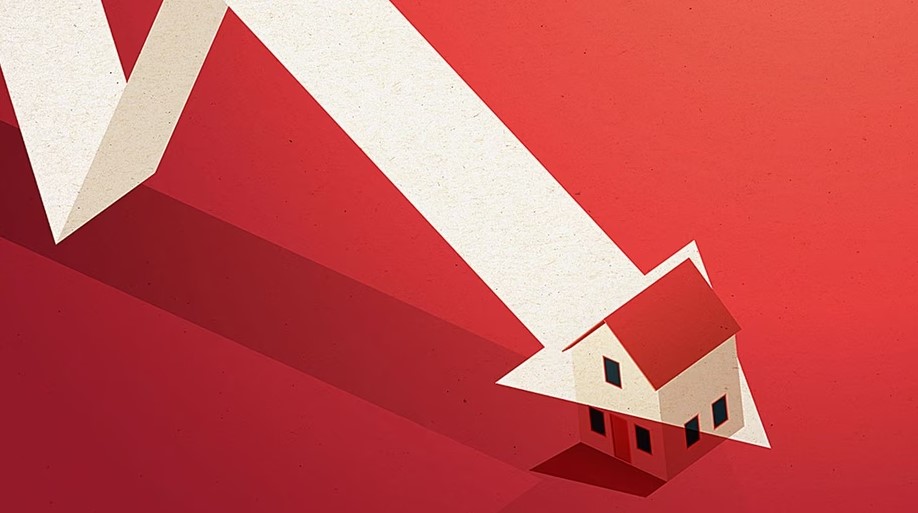Published by REALTOR.com | April 9, 2025
Trump’s new tariffs have raised fears that the U.S. economy will plunge into recession, which would have a major impact on housing.
President Donald Trump’s new tariffs have raised fears that a trade war will plunge the U.S. economy into recession, which would have major implications for the housing market.
JPMorgan Chase CEO Jamie Dimon, who has previously supported tariffs, said recently that recession is now “a likely outcome” as households pull back on spending in response to their shrinking 401(k) and investment account balances.
Following Trump’s “Liberation Day” tariff announcement, J.P. Morgan analysts raised their forecast of the odds for a global recession to 60%, up from 40% just a few weeks ago. Likewise, Moody’s Analytics Chief Economist Mark Zandi raised his recession outlook to 60%.
Even billionaire hedge fund manager Bill Ackman, a vocal Trump supporter, warned that the world is on the brink of “self-induced economic nuclear winter” as he pleaded for the president to pause his new tariffs.
A recession is a significant slowdown in economic activity across multiple sectors, lasting more than a few months, according to the National Bureau of Economic Research, which is charged with officially declaring recessions.
Recessions are typically marked by a slowdown in hiring, an increase in layoffs, and a rising unemployment rate. However, a recession is not the same thing as a stock market crash—although a steep enough decline in the market can trigger a real economic slowdown.
Although recession fears are rising, it is not a guaranteed outcome. Trump has insisted that his plan will boost the U.S. economy, and he may strike beneficial deals with key trading partners, reducing the economic fallout from his tariff scheme.
Still, even economic uncertainty can affect the housing market, giving homebuyers pause as they weigh what could be the largest single purchase of their lifetime.
What a recession would mean for home prices and sales
By definition, a recession brings higher unemployment, increasing financial strain for many households. As a result, buyer demand pulls back and home sales fall.
Falling buyer demand would put downward pressure on home prices, as for-sale inventory starts to pile up and spends more time on the market.
However, the housing market is already fairly soft, with home sales near record-low levels. Last year, home sales were the slowest since 1995, and early data from this year has shown little improvement.
Homebuilders, who are already facing cost pressure from tariffs, would likely pull back sharply on new construction in a recession, exacerbating the existing housing supply gap.
In short, the impact of a recession on the housing market could be noticeable without being catastrophic, and primarily an extension of pre-existing trends: fewer buyers, rising inventory, and softening prices.


